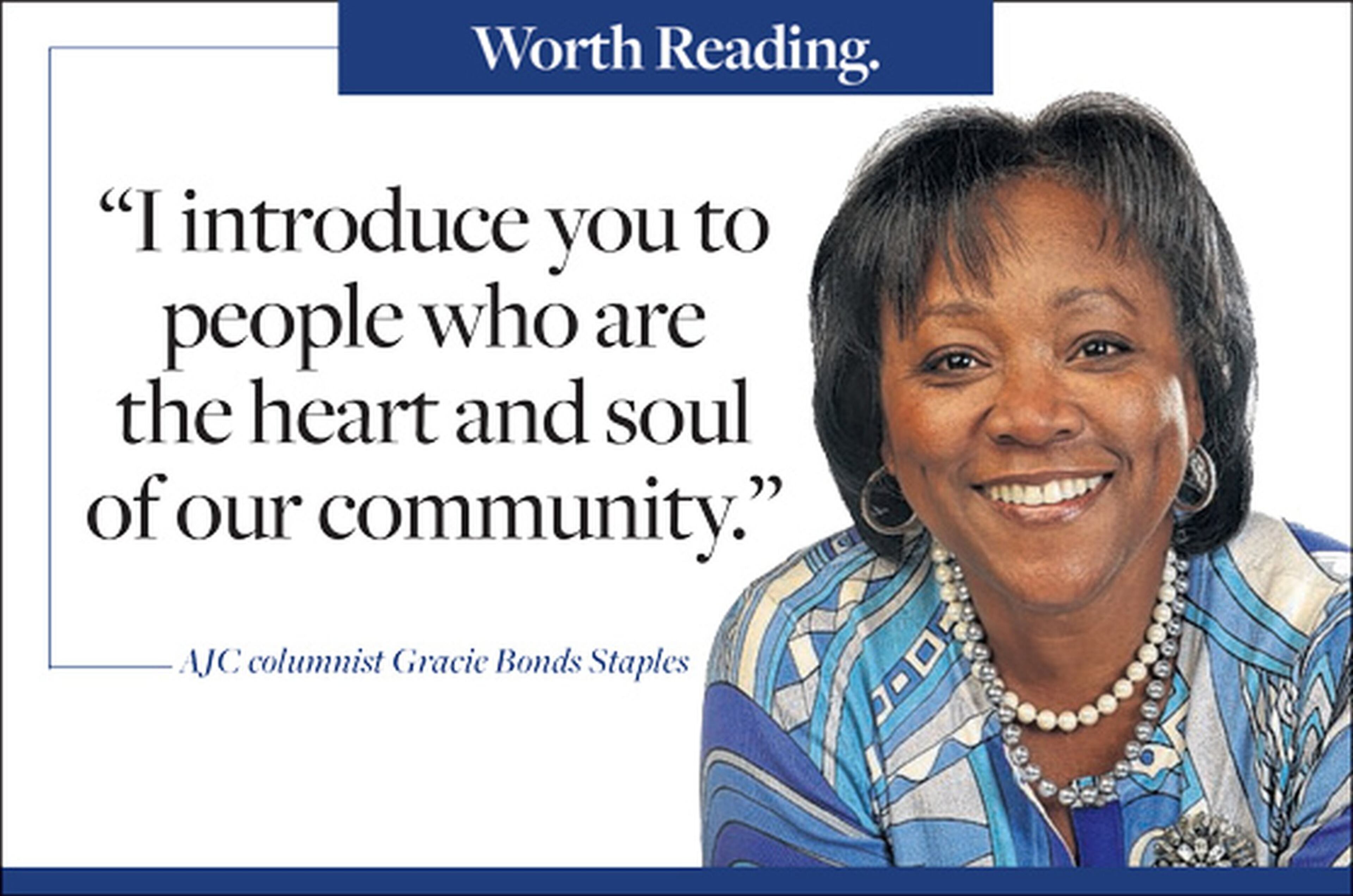Life with Gracie: How do we push past the trauma caused by Charlottesville violence?

Any time I broach the subject of race, I feel like I did every time I had to dissolve disputes between my daughters, which was, thinking back, much like walking on hot coals.
It was certainly more complex than it first appeared. Having grown up in a family of 10 kids, I had no doubt about that.
While it was always clear they were at war, the reasons weren’t always so obvious. One of them felt like the victim or misunderstood or even the least loved of the two.
I don't want to be too simplistic, but that's how I view this race war I see playing out in our country from police shootings to affirmative action policies, to the violence that erupted days ago in Charlottesville, Va.
I see a lot of hurting and scared people who haven’t yet learned to manage their emotions, who don’t understand that hate is fueled more often than not by resentment, displaced anger, and fear. It’s why David Duke could say he’s helping the president “take our country back.”

Which gets me to James Fields Jr., the 20-year-old accused of plowing his car into counter-demonstrators at a white supremacist rally Saturday and killing Heather Heyer. Nineteen others were injured, some seriously.
The very idea that someone so young could be so filled with hatred, with so little regard for the sanctity of life, saddened me. And yes, it’s the same feeling I get when I see young black brothers killing each other; when police shoot and ask questions later.
This is what happens when we view those outside our circle as other — those other people, those other problems that never have anything to do with you and me.
“That’s the greatest example of white privilege I know,” said Melanie Storrusten, a licensed clinical social worker in Atlanta. “As a white woman, I can choose to be impacted by this or not. People of color are not offered the luxury of ignoring these events. The political is personal — even when events happen far away, their impact is real, and it is significant.”
The problem is too many people view the progress we’ve made in race relations and conclude that racism is history, that it no longer applies.
Then the unthinkable visits our loved one, our neighborhood, city or state, and we're left to figure out what to do with the trauma.
But let’s deal with James Fields Jr. first. What mix of circumstances moved someone to drive a car into people? Fatherlessness? Fear? Hatred?
We may never know, but Derek Weimer, a former history teacher of Fields, who was arrested shortly after the incident, said the suspect was obsessed with Hitler and had radical ideas on race.
“A lot of boys get interested in the Germans and Nazis because they’re interested in World War II,” Weimer was quoted as saying. “But James took it to another level.”

Fields, of course, wasn’t alone. Maybe that’s why so many of us are shellshocked, myself included.
There’s a lot of hatred out there. It can be scary and even harder to deal with. For us adults and for our children.
Storrusten says watching these kinds of acts of violence can be traumatizing in and of themselves, especially for people of color and especially when society doesn’t offer consequences for those actions.
“When I see people like me being hurt and attacked and society seems to say it’s OK, it seems like an attack on my worthiness as a person,” Storrusten said.
When faced with those messages, Storrusten said people can benefit from seeking healing in the community that will counteract the message of unworthiness and hate.
“There’s a tendency to want to be able to handle our feelings on our own, but when we witness events like these, it’s important to seek out support and counseling,” she said. “It’s equally important to surround yourself with people who love you.”
Storrusten also suggests we curate our social media sources.
“You want to be aware of what’s going on in the world, but sometimes it’s overwhelming,” she said. “The constant bombardment reharms me every time I see it, so it’s important to limit what I take in and then increase the amount of good stuff coming in.”
But even without these larger events, Storrusten said our society is full of micro-aggressions that chip away at people’s sense of worth.
It explains why, for instance, being on the receiving end of overt or subtle racism creates intense and constant stress, which boosts the risk of depression, anxiety and anger — factors that can lead to or aggravate heart disease.

Research shows, for instance, that a mere 1 percent increase in incidences of racial disrespect translates to an increase in 350 deaths per 100,000 African-Americans.
That’s the part of racism you don’t hear much about, but it speaks to the seriousness of the issue, why it shouldn’t be ignored.
If you were able to watch last weekend’s events and not feel anxious or angry or both, maybe this is an opportunity to ask yourself why. If you’re not hurting, maybe you should turn to someone who is and ask how you can help.
Our children are watching.
RESOURCES FOR HOPE AND HEALING
Starshine and Clay: A Place for Women of Color to Be. 3-5 p.m. Sept. 9. $35; Restorative Yoga for Resilience: Bouncing Back From Race-based Trauma for People of Color. Nov 11-12. $325. Sacred Chill West, 2030 Bolton Road, Suite 400, Atlanta. 678-705-3448, www.sacredchillwest.com. info@sacredchillwest.com.
Chantea Williams, Ph.D., licensed psychologist, the Highland Psych Collaborative, 675 Seminole Ave. NE, Suite 307, Atlanta. 678-701-9559, ext. 104.
Shades of Beautiful: A Processing Group for Women of Color meets weekly at 5:30 p.m. Mondays. $55. Summit’s Edge Counseling, 1640 Powers Ferry Road SE, Suite 5-110, Marietta. Call 1-888-551-5168 to register.


